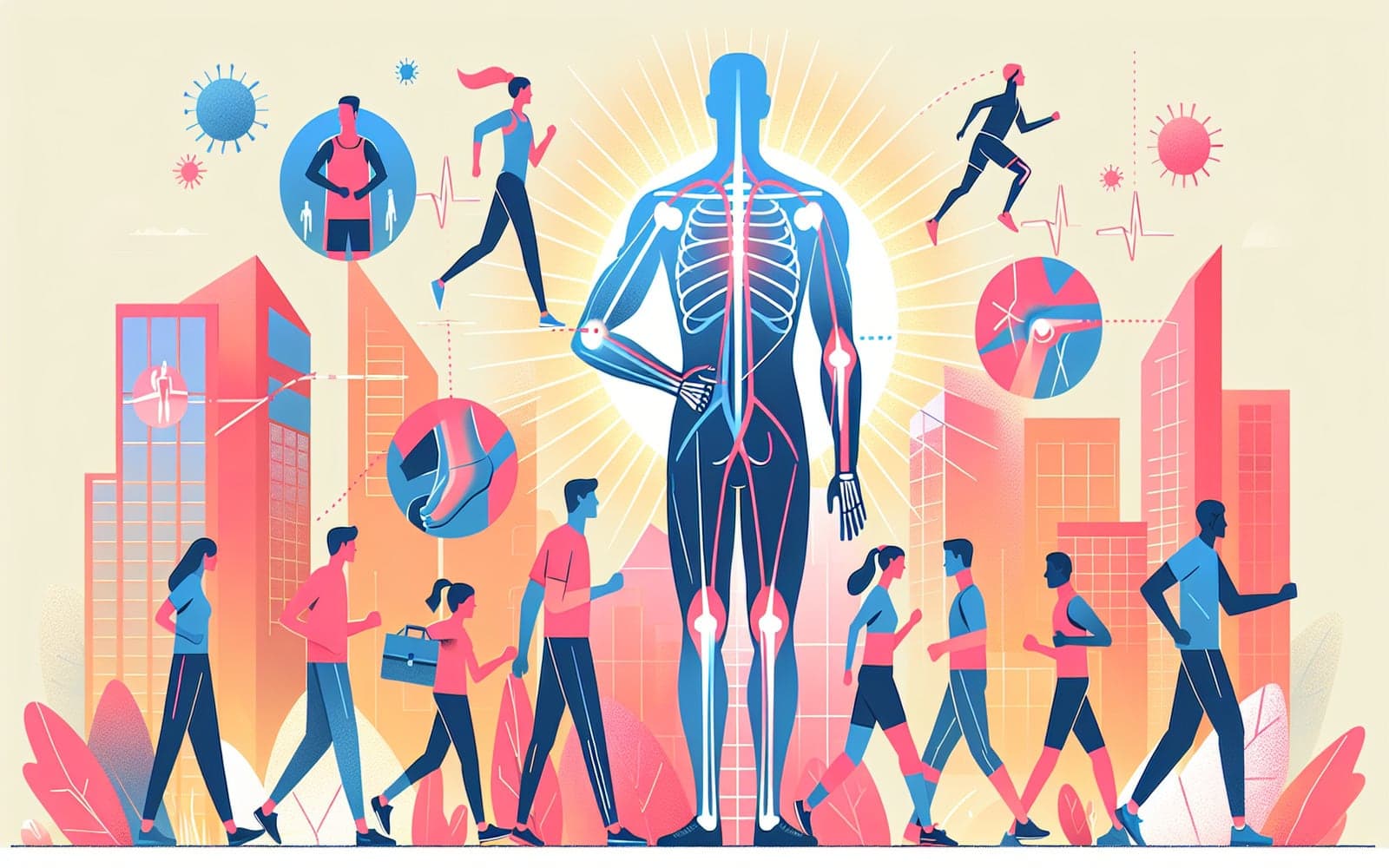Why Do Runners Get Injured So Often? Discover the Risk Factors
Published: Jan 08, 2024
Running is a great way to stay fit, but why do so many runners end up injured? This article explores the various risk factors that contribute to running injuries.
Contents
The Most Common Injuries
Running injuries are often due to overuse, affecting areas like the knee, feet, and lower legs. Patellofemoral pain, shin splints, and Achilles tendinopathy are among the most frequent issues runners face. Understanding these common injuries can help runners take steps to prevent them.
Intrinsic Risk Factors
Some risk factors come from within, like your body's anatomy or past injuries. For example, if you've had a previous injury, you're more likely to get hurt again. Factors like leg length discrepancies or a high foot arch can also increase injury risk.

Extrinsic Risk Factors
Outside factors like your training routine and the surfaces you run on can also play a big role. Running too many miles or suddenly increasing your training intensity can lead to injuries. Choosing the right shoes and running on softer surfaces can help reduce risks.
Frequently Asked Questions
Most running injuries are due to overuse and improper training techniques.
Knees, feet, and lower legs are commonly injured in runners.
Yes, a history of injuries increases the risk of future injuries.
Key Takeaways
Understanding the risk factors for running injuries can help you run safer and smarter.
Want to learn more about preventing running injuries? Talk to Doctronic today!Related Articles
References
Messier SP, Legault C, Schoenlank CR, et al. Risk factors and mechanisms of knee injury in runners. Med Sci Sports Exerc 2008; 40:1873.
Fields KB, Sykes JC, Walker KM, Jackson JC. Prevention of running injuries. Curr Sports Med Rep 2010; 9:176.
Always discuss health information with your healthcare provider.

